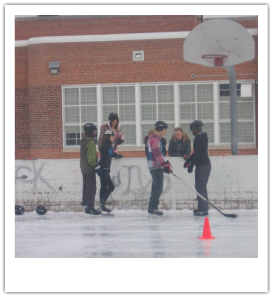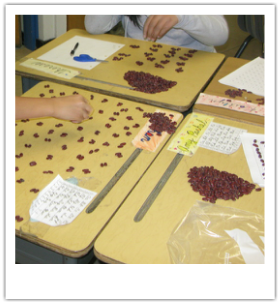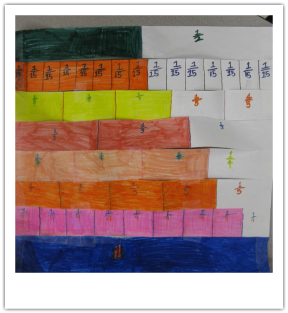Planning for student led learning
Expeditionary Learning is fluid, dynamic and flexible, guided by the ever evolving learning path of each student. It is academically rigorous addressing specific curricular targets and challenging students to go further than these expectations. The learning community maintains a balance of fieldwork, mini-lessons and workshops to meet the needs of its learners. Our purpose is to orchestrate learning experiences in which we “place in students’ hands the exhilarating power to follow trails of interest, to make connections, to reformulate ideas, and to reach unique conclusions” (Brooks & Brooks, 1999, p. 22). This goal is supported with a balance of field work, targeted content and skill based lessons and student led workshops. This fluid mix invites all learners into an inclusive environment where multiple opportunities exist for learning at multiple levels.
|
At the heart of Expeditionary Learning is fieldwork. It is during expeditions beyond the classroom that learners have opportunities to become mathematicians. This new role sees them apply research techniques and tools used by professionals in the field, otherwise inaccessible to them in the school. While on site our student mathematicians are actively investigating, researching and experimenting as professional mathematicians would.
Fieldwork is risky and inspiring. It places us directly in the problem, no longer outsiders reading about a problem or spectators watching, we are the main characters. Students interact with and respond to the elements of the situation. Reacting in the field is consistent with Mason and Spence’s (1999) view of knowing to act as a combination of prior knowledge of facts and theories and prior experiences (p.141). This knowing to act is found within the interactions between individuals and the elements of the environments, it is alive and evolving (Mason & Spence, 1999, p.141). |
|
A workshop is a lively exchange of ideas. The purpose of the workshop varies according to the immediate needs of the students. Workshops may be discussions, planning sessions, a time for calculations, building models, experimenting or sharing conclusions. Students work in small groups or individually. It not intended that all students take part in the same activity at the same time.
Workshops that follow fieldwork are spirited debates where cooperation and argument mingle. Students are communicating their learning using technical, content specific language, symbols and models. These workshops encourage the exchange of ideas between learners where new discoveries can be verified and new understandings shared. Through sharing what they’d tried and learned students become learning resources for each other. |
|
The purpose of a mini-lesson or a conference is to build upon what has been discovered in the field or during a workshop. During a mini-lesson or conference the teacher explores what the students have come to understand for themselves. By asking guiding questions or by presenting new information the teacher supports the students in clarifying, making connections and moving towards a conclusion.
Topics for a mini-lesson are specifically selected based on formative assessment data. Students are offered immediate feedback, modeling, guided practice and individual practice thus mapping a co-created learning path. Topics for a mini-lesson can come directly from the mathematical content, such as isolating an unknown in an equation, or from specific behaviors associated with the task at hand, such as organizing experimental data for presentation. |
Your browser does not support viewing this document. Click here to download the document.



